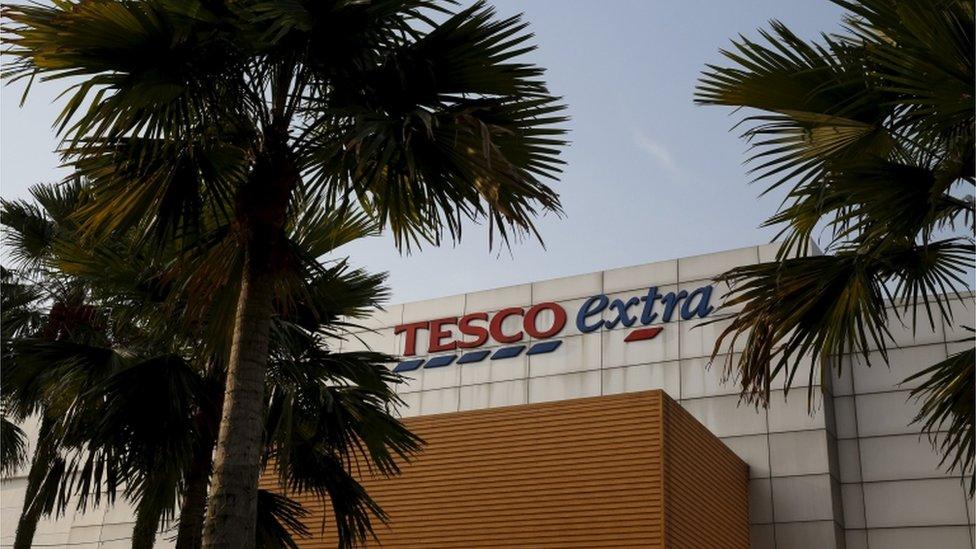Tesco is banking on UK shoppers
- Published
- comments

The sale of Homeplus begins Tesco's exit from East Asia
It's not quite money down the back of the sofa, but the chief executive of Tesco has been hunting for bits of the business he can sell ever since arriving at the beleaguered supermarket last year.
He needed to get rid of assets to fend off speculation that the supermarket's debt - which was standing at more than £20bn - was becoming a problem. The South Korean sale goes some way to alleviating the business's balance-sheet strain.
Speculation was growing that without significant sell-offs, Tesco might need to raise fresh capital from shareholders - never a happy prospect.
And with much of its debt needing to be paid off or refinanced over the next five years, down-payments now were increasingly necessary to spark an improvement in the supermarket's credit rating.
That is important for Tesco's financial health, as a better credit rating means that it can borrow money more cheaply and pay less to insure itself against the possibility of default.
At present, two of the most important credit rating agencies, Standard and Poor's and Moody's, have Tesco at the lowest rating - "junk".
Dave Lewis, Tesco chief executive, argues that the £4bn proceeds of the Homeplus sale will improve the supermarket's debt profile - it is all being used to pay off what the business owes.
And the less money it owes - and the cheaper it can borrow - the more money Tesco can spend improving its UK operation and attracting in new customers.
Homeplus was a healthy business, with annual profits between £300 and £400m.
Another healthy business that Tesco owns is its data division, Dunnhumby, which is also up for sale.
But fears there over falling profits have cut its possible value to below £1bn.
Tesco's debt now stands at £17bn, including pension liabilities. So Mr Lewis still has some way to go.
Of course, selling businesses does not alone solve the problem of how to get more customers through the doors.
Mr Lewis will have to prove to his shareholders that by making Tesco an even more UK-focused business - three-quarters of the supermarket's revenue will now come from Britain - he can still drive significant growth.